ROTATOR CUFF SPARING TECHNIQUE
Comprehensive orthopedic care serving the Scottsdale, Peoria and the greater Phoenix area.
Rediscover your freedom with the next generation of shoulder replacement
Rediscover your freedom with the next generation of shoulder replacement
- Faster Recovery
- Less Postoperative Pain
- Optional Sling Use
- Shoulder Equivalent of the Jiffy Knee
Shoulder Equivalent of the Jiffy Knee
The Jiffy Knee has been revolutionary because traditionally with knee replacements patients had to recover from violation of the extensor mechanism as well as the replacement. With shoulders and the traditional approach, the surgeon had to violate the rotator cuff to get into the joint to do the shoulder replacement, repairing it at the end of the case. By sparing the rotator cuff, there is less pain and a faster recovery after surgery.
Why Shoulder Replacement?
Shoulder arthritis or injury can make daily activities painful and difficult. A total shoulder replacement relieves pain and restores function - but traditional techniques come with limitations.
The Traditional Approach
In the traditional shoulder replacement, the rotator cuff - a key stabilizer of the shoulder - must be cut or detached for access to the joint. After implanting the prothesis, surgeons must repair this tendon.
The Rotator Cuff Sparing Approach
With this innovative technique, the rotator cuff is left intact. Dr. Enders goes in between the rotator cuff tendons, through a space called the rotator interval, utilizing special instrumentation.
You no longer have to recover from shoulder replacement and a tendon repair.
That’s a game-changer!
The Traditional Approach
- Cuts or detaches the subscapularis tendon
- Requires tendon repair after surgery
- Sling required for 4-6 weeks
- Delayed range of motion
- Longer recovery time
The Rotator Cuff Sparing Approach
- Leaves the tendon fully intact. No tendon repair needed
- No enforced sling use after surgery
- Patients regain shoulder mobility sooner
- Minimal soft tissue trauma means less pain
Traditional Approach: Damage to the rotator cuff during shoulder replacement surgery.
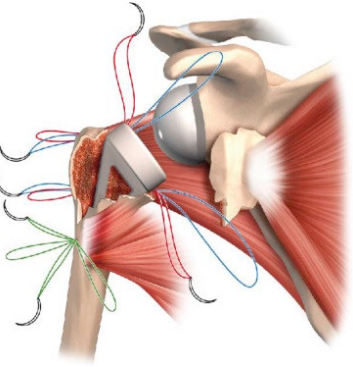
Rotator Cuff Sparing Approach: Entering through the rotator interval without damaging the rotator cuff, utilizing special instrumentation.
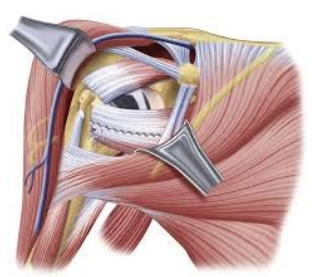
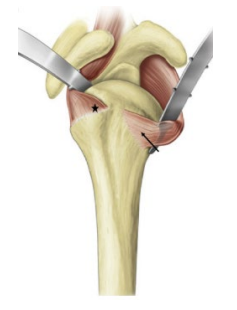
TECHNOLOGY THAT WORKS FOR YOU
Dr. Enders uses Precision Planning with Advanced Imaging and 3D-Printed Implants for Better Bone Preservation
Every shoulder replacement procedure starts with a CT scan, allowing us to analyze your unique shoulder anatomy in detail. That scan is then used to:
- Simulate post-op motion and joint function
- Optimize implant positioning
- Identify the best surgical approach
From that data, a 3D-printed guide is created - matched precisely to your bone - to ensure an optimal placement during surgery. This eliminates guesswork and maximizes long-term results.
Dr. Enders uses the latest 3D-printed metal baseplates, which conform precisely to your shoulder without needing to remove excess bone - a major advantage when bone stock is limited.
- Preserves your natural anatomy
- Improves implant fixation
- Enhances long-term function and stability
This isn't one-size-fits-all. This is surgery designed just for you.
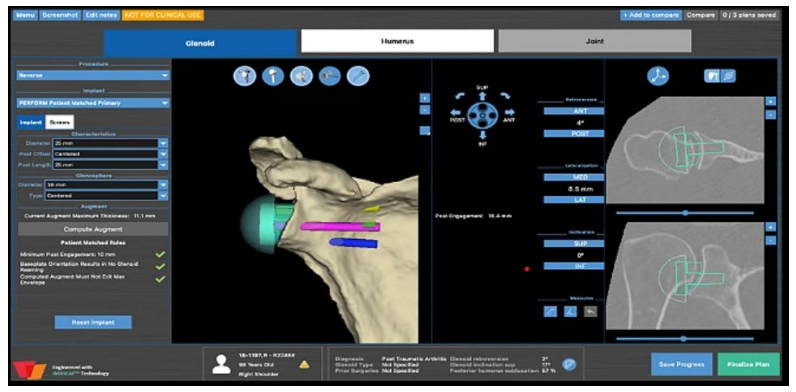
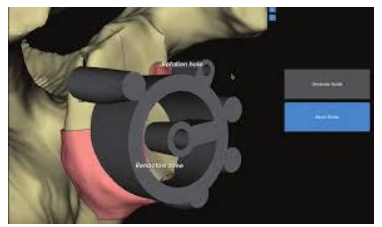

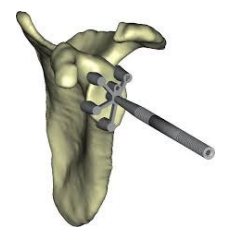
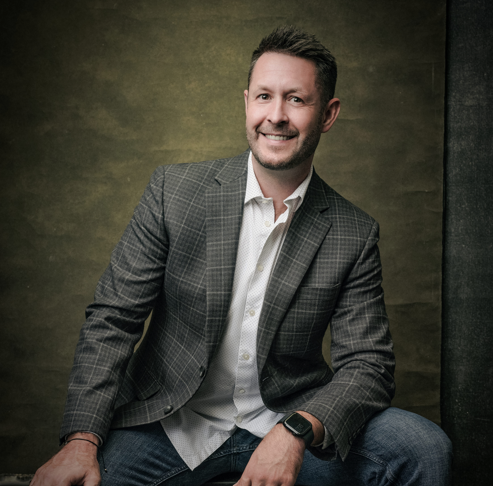
MEET DR. ENDERS
Fellowship trained, Board-Certified, Orthopedic Surgeon & Shoulder Replacement Specialist
Dr. Enders offers state-of-the-art surgical care with a personalized approach. With extensive experience in shoulder reconstruction, Dr. Endres is proud to offer this breakthrough in shoulder replacement - aimed at faster, more complete recoveries.
PHONE
Ask us if the rotator cuff sparing shoulder replacement is right for you.
